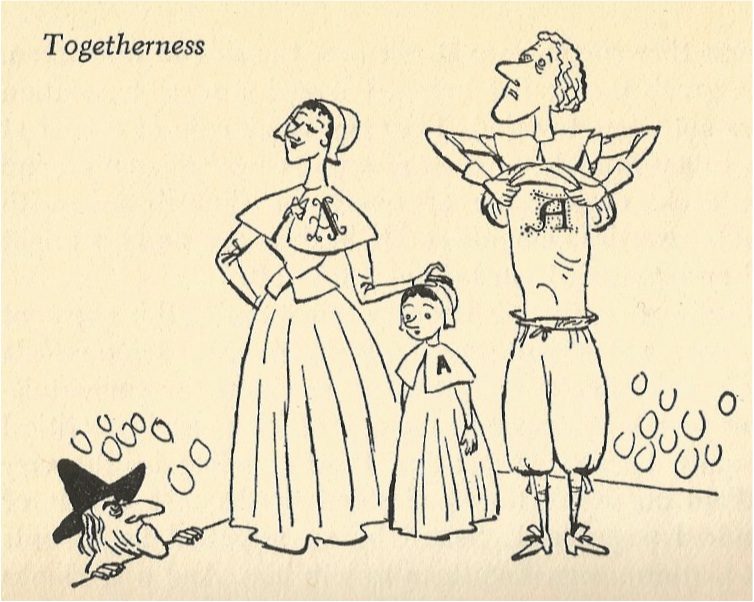Kevin Drum spent much of this week trying to figure out what Wisconsin Gov. Scott Walker meant when he said that abortion should be criminalized even to save the life of the mother because abortion was never necessary to save the life of the mother. “There are many other alternatives that can also protect the life of that mother,” Walker said — seeming to suggest that he is aware of some break-through medical miracle.
But no, as Drum eventually figured out, Walker is just doing the same semantic gymnastics we’ve seen earlier from anti-abortion pols like Rick Santorum. He’s saying that an abortion performed because it was necessary to save the life of the mother isn’t really an abortion.
Walker’s more lawyerly defenders on this point attempt to invoke the principle of “double effect” here, but this is not double effect, it’s merely double-speak in defense of a double standard. Double effect has to do with intention. Double standards have to do with identity.
For Walker et. al., the word “abortion” refers to evil baby-killing performed on behalf of irresponsible sluts for unknown — but presumably evil and indefensible — reasons. The termination of a pregnancy by good, white, Christian people may be the same procedure, but since they’re good, non-slutty people, they get to call it something else. They get to tell themselves, and others, that something else is happening. Those people — those untrustworthy sex-having women — have abortions. Good People rely, instead, on “many other alternatives” for calling it that.
Walker, in other words, goes beyond the usual double-standard of “The Only Moral Abortion Is My Abortion,” redefining his terms and reality itself to suggest that “my abortion” isn’t even an abortion at all. The A-word only applies when those other people do it for reasons we do not need to explore because we simply know, beforehand, that those reasons are unworthy, ignoble, immoral and indefensible.

The appeal to the ethical notion of double effect is revealing here because that principle, again, has to do with intention, and Walker’s opposition to legal abortion is based on a massive, sweeping, unspoken assumption about other people’s intentions.
Roughly, the idea of double effect is that some otherwise-impermissible actions can be morally justifiable due to the primary intention. Cutting someone with a knife, for example, is violent and immoral behavior. But if the person doing that cutting is a surgeon who wields a scalpel with the primary intention of healing and restoring a patient, then this otherwise unacceptable and immoral act becomes permissible and even praiseworthy.
Double effect is a notoriously pliable and elastic principle — see, for example, the history of warfare and “collateral damage.” That word “collateral” is a direct appeal to this principle. Long-time readers of this blog are familiar with that argument due to the endless discussions here attempting to litigate and mitigate my claim, “You’re Not Allowed to Kill Civilians,” into something far less constraining, like “You’re Not Allowed to Exclusively and Intentionally Target Civilians While Cackling and Twirling Your Wax Mustache.” But despite the horrifically lethal history of this idea of “collateral damage” being abused in defense of a long list of atrocities, the abstract, ethics-textbook idea of double effect isn’t wholly disposable as nothing more than an ends-justifies-the-means rationalization.
I don’t want to dive down the rabbit hole of trolleyology here, but the basic Trolley Problem is often approached with some implicit or explicit appeal to this idea of double effect. Flip the switch, people say, sending the deadly trolley away from the five people and dooming the lone person on the other track. This would be an indefensibly evil act if those five people weren’t there on the original track and the person flipping the switch did so exclusively with the primary intent of murdering the poor bastard on the other line, but the switch-flipper’s actions are deemed acceptable because of those five people and the switch-flipper’s primary intent to save their lives. The death of the lone person on the other track is not the main motive for the decision, and the decision is to be judged by that main motive and not its tragic collateral consequence.
Now imagine that I make this argument for me, but not for you. I see the runaway trolley headed toward those five innocent people and I flip the switch, sending it onto the other track where it will, alas, kill that lone unfortunate individual. But my choice to do this, I insist, is righteous, moral and heroic because I know that I am trustworthy and my intentions are noble. My intention is to Do Good — to save the lives of those five innocents on the first track.
But then you see an identical runaway trolley headed toward an identical group of five innocent people and you flip the switch, sending it onto an identical other track to kill a single person, and I condemn you as a hateful, deliberate murderer. Your choice to do this, I insist, is evil, immoral and cowardly because I know that you are untrustworthy and your intentions are ignoble. Your intention must have been to Do Evil. Unlike me, you weren’t considering the five innocent people on the first track — you simply delighted in the prospect of seeing that trolley take the life of the individual on the other track.
We performed precisely the same act. We flipped the same switch with identical consequences. But I presume that my action was purely intentioned while your action was cartoonishly evil, irresponsible and malicious.
That double standard, essentially, is what Scott Walker is arguing when it comes to abortion.










